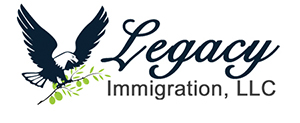U.S. Citizenship and Immigration Services (USCIS) has announced significant updates to immigration fees following the passage of the H.R. 1 Reconciliation Bill (H.R. 1). A Federal Register Notice (FRN) details the new fees, their effective dates, and payment requirements. These changes affect various immigration applications, including asylum, work authorization, Temporary Protected Status (TPS), and Special Immigrant Juvenile petitions.
If you are preparing to file any immigration applications in 2025, it is essential to understand how these new fees will impact you.
Key Effective Dates for the New Fees
July 22, 2025 – USCIS will require the new H.R. 1 fees for all applicable benefit requests postmarked on or after this date.
August 21, 2025 – USCIS will reject any applications postmarked on or after this date if the proper H.R. 1 fees are not included.
Failing to submit the correct fees will result in your application being returned, which could delay your immigration process.
New USCIS Fees Under H.R. 1
The new fee structure introduces several first-time charges and increases for commonly used forms:
1. Asylum Applications – Form I‑589
New Fee: $100 for all asylum applications.
Annual Asylum Fee (AAF): $100 per year for each calendar year the application remains pending.
Who Must Pay: Any applicant with a pending Form I‑589 filed after October 1, 2024, that has been pending for at least 365 days.
Payment: The AAF must be paid online. USCIS will notify applicants when payment is due and provide instructions.
2. Employment Authorization – Form I‑765
The new fees apply to applicants in the following categories: (a)(4), (a)(12), (c)(8), (c)(11), (c)(19), and (c)(34).
Initial EAD: $550
Renewal or Extension: $275
Special Rule: If you request a new EAD after receiving a new period of parole (re-parole) through Form I‑131, the fee is $275.
Important: H.R. 1 also shortens validity periods for some EADs:
Parolees: No more than 1 year or the duration of parole, whichever is shorter.
TPS Holders: No more than 1 year or the duration of TPS status, whichever is shorter.
3. Special Immigrant Juvenile Petitions – Form I‑360
New Fee: $250 for any alien filing as a Special Immigrant Juvenile.
4. Temporary Protected Status – Form I‑821
New Fee: $500 to register for TPS, increased from the previous $50 fee.
Fee Waivers and Additional Costs
A key point for applicants:
H.R. 1 fees cannot be waived or reduced.
Current USCIS fees under 8 CFR 106 can still be waived using Form I‑912, Request for Fee Waiver, if eligible.
H.R. 1 fees are in addition to current USCIS fees and must be submitted separately.
USCIS Revenue Allocation
A portion of the new fees will go to the Immigration Examinations Fee Account (IEFA) to fund USCIS operations.
The remainder will be deposited into the U.S. Treasury General Fund.
Fees will increase annually to reflect inflation, as required by H.R. 1.
Future Fee Announcements
The FRN does not cover all the new H.R. 1 fees. USCIS will announce additional fee changes in the future, including updates for:
Form I‑131 – Application for Travel Document and Parole Document
Form I‑102 – Application for Replacement/Initial Nonimmigrant Arrival-Departure Document
What Applicants Should Do Now
Check your filing date to see if your application will fall under the new fee schedule.
Budget for the new fees if filing after July 22, 2025.
Monitor USCIS notices if you have a pending asylum case, as the Annual Asylum Fee will be billed automatically.
File early if possible to avoid rejections for missing fees.
With the new fee structure, staying informed and planning ahead is essential for avoiding delays in your immigration process.


